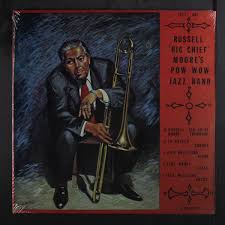
Daily Dose Of Jazz…
Big Chief Russell Moore was a Pima American Indian born on August 13, 1912 in Komatke, Arizona and lived in Blue Island, Illinois from age twelve, where he studied trumpet, piano, drums, French horn, and trombone. Moving to Los Angeles, California in the early 1930s, he worked freelance with Lionel Hampton, Eddie Barefield, and others. Departing Los Angeles for New Orleans, Louisiana in 1939, he worked with Oscar Celestin, Kid Rena, A.J. Piron, Paul Barbarin, Ernie Fields, Harlan Leonard, and Noble Sissle.
He played with Louis Armstrong’s last big band from 1944 to ‘47, then worked freelance on the Dixieland jazz circuit. The 1950s saw him playing with Ruby Braff, Pee Wee Russell, Eddie Condon, Wild Bill Davison, Jimmy McPartland, Tony Parenti, Mezz Mezzrow, Sidney Bechet, and Buck Clayton. He returned to play in the Louis Armstrong All-Stars in 1964–65, but fell ill and had to leave the group. After recovering he led a Dixieland group of his own, which toured Canada repeatedly.
He worked with pianist Eddie Wilcox shortly before Wilcox died in 1968, then played with Cozy Cole in 1977 and Keith Smith in 1981. Trombonist Big Chief Russell Moore, who recorded as a leader for Vogue, Trutone, and Jazz Art record labels, passed away in Nyack, New York on December 15, 1983.
More Posts: bandleader,history,instrumental,jazz,music,trombone
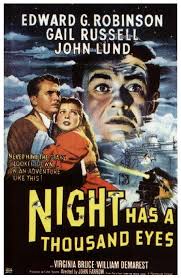
Hollywood On 52nd Street
The Night Has A Thousand Eyes is a song composed by Jerry Brainin, with lyrics by Buddy Bernier. The song was written for the 1948 film noir Night Has a Thousand Eyes and was performed by an unknown band as rhumba in the background of a party.
The film stars Edward G. Robinson and was directed by John Farrow. The film is based on the novel of the same name by Cornell Woolrich, originally published under the pseudonym George Hopley.
Since its introduction, the song has been recorded by a number of artists, among them John Coltrane, Sonny Rollins, Horace Silver, UAB SuperJazz featuring Ellis Marsalis, Harry Belafonte, Paul Desmond with Jim Hall, Toshiko Akiyoshi, Pharoah Sanders, Irene Kral, Harry Beckett, Petula Clark, Gloria Lynne, and Carmen McRae.
The Story
The film opens in New Orleans, where John Triton (Robinson) is “The Mental Wizard”, a nightclub fortune teller. During a show one evening, Triton suddenly urges an audience member to rush home, cautioning that her son is in danger. As the story unfolds, Triton struggles with his new-found psychic ability, as all of his relentlessly bleak predictions prove accurate. Jerome Cowan plays Whitney Courtland, Triton’s best friend, who becomes wealthy using tips from the now-psychic Triton.
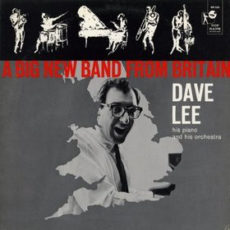
Daily Dose Of Jazz…
Dave Lee was born on August 12, 1926 in Newington, London, England and took lessons as a child. When his photographer father was transferred during the war to the North East to work on camouflaging military equipment, it was here that he started to perform in local groups. His big break came in 1942 when he won the Melody Maker poll for Best New Jazz Pianist.
A move to South Africa in 1947 had him working as a resident musician for night clubs in Port Elizabeth and Johannesburg. He went on to study at the Johannesburg Conservatory of Music gaining a Mus.Bac. By 1954 Lee invited Johnny Dankworth to perform in South Africa, and it was Dankworth who persuaded him to return to England as a pianist/arranger for the Johnny Dankworth band. From 1955 to 1959 he played on all of the recordings made by the Johnny Dankworth Orchestra.
David performed with Terry and McGhee, the Buddy Tate Quartet and Jack Parnell. He also arranged for Norman Wisdom, Benny Hill, Cleo Laine and Judy Garland. From 1959 he led a trio who recorded a number of successful albums, including A Big New Band from Britain, which was in The Cashbox Top Ten for six weeks. The trio also produced music for the 1960s TV series The Avengers, for which John Dankworth had written the original theme music, and the Trio features prominently in the 1962 episodes The Removal Men. They would go on to appear in several other episodes.
With his composing career beginning in the 1950s, he was writing jingles for television ads, then teamed up with lyricist Herbert Kretzmer and wrote hit songs Bangers and Mash, Goodness Gracious Me, and Kinky Boots and music for the West End stage musical Our Man Crichton in 1964.
His film music career began in 1960 with low-budget features, but gradually he progressed to fine orchestral scores for important movies. In 1983, Lee was elected BBC Jazz Society Musician of the Year, and in 1990 was one of the founders of jazz-only radio station 102.2 Jazz FM. Still busy in his 90s, pianist, arranger, orchestra leader, songwriter and film composer David Lee’s novel Nothing Rhymes with Silver about a fictional jazz pianist was published in 2007.
More Posts: arranger,bandleader,history,instrumental,jazz,music,piano
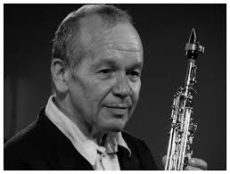
Three Wishes
Pannonica asked Steve Lacy what he would wish for if he was given three and he told her:
-
-
“The diversion of all war funds into an exploration of the potentialities of the mind.”
-
“Universal comprehension of art.”
- “The end of fear.”
-
*Excerpt from Three Wishes: An Intimate Look at Jazz Greats ~ Compiled and Photographed by Pannonica de Koenigswarter
More Posts: baroness,history,instrumental,jazz,music,pannonica,saxophone,three,wishes
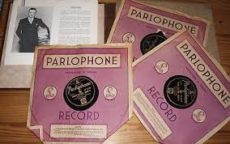
Daily Dose Of Jazz…
Max Abrams was born on August 11, 1907 in Glasgow, Scotland and began playing drums with dance bands in his teens, often in his hometown area. In the late Twenties, he headed to London, England and was soon active with a number of bands there.
Touring South Africa before returning to London, in 1932, he joined Jack Hylton’s orchestra. During the next few years, Max played with several leading UK dance bands, including Sydney Lipton’s and Carroll Gibbons’ Savoy Orpheans. He was in demand for numerous recording sessions with many leaders as well as recording with his own band in 1935. He also made a series of tuition records for aspiring drummers.
In the early 40s, Abrams drummed with Ambrose, Jack Payne, and Stéphane Grappelli, then, in 1945, joined Sid Phillips for an engagement that lasted well into the next decade. During this period he often worked with small bands, including Humphrey Lyttelton’s, and appeared regularly on the radio. Technically gifted as a percussionist, he played several instruments including vibraphone, xylophone, and timpani.
As an educator, he was much sought after and founded his own School for Drum Tuition. His admired ability drew many eager and gifted drummers to him, among them Jack Parnell. Drummer Max Abrams, who actively performed from the 1930s through the 1950s, passed away on November 5, 1995.
More Posts: bandleader,drums,history,instrumental,jazz,music



